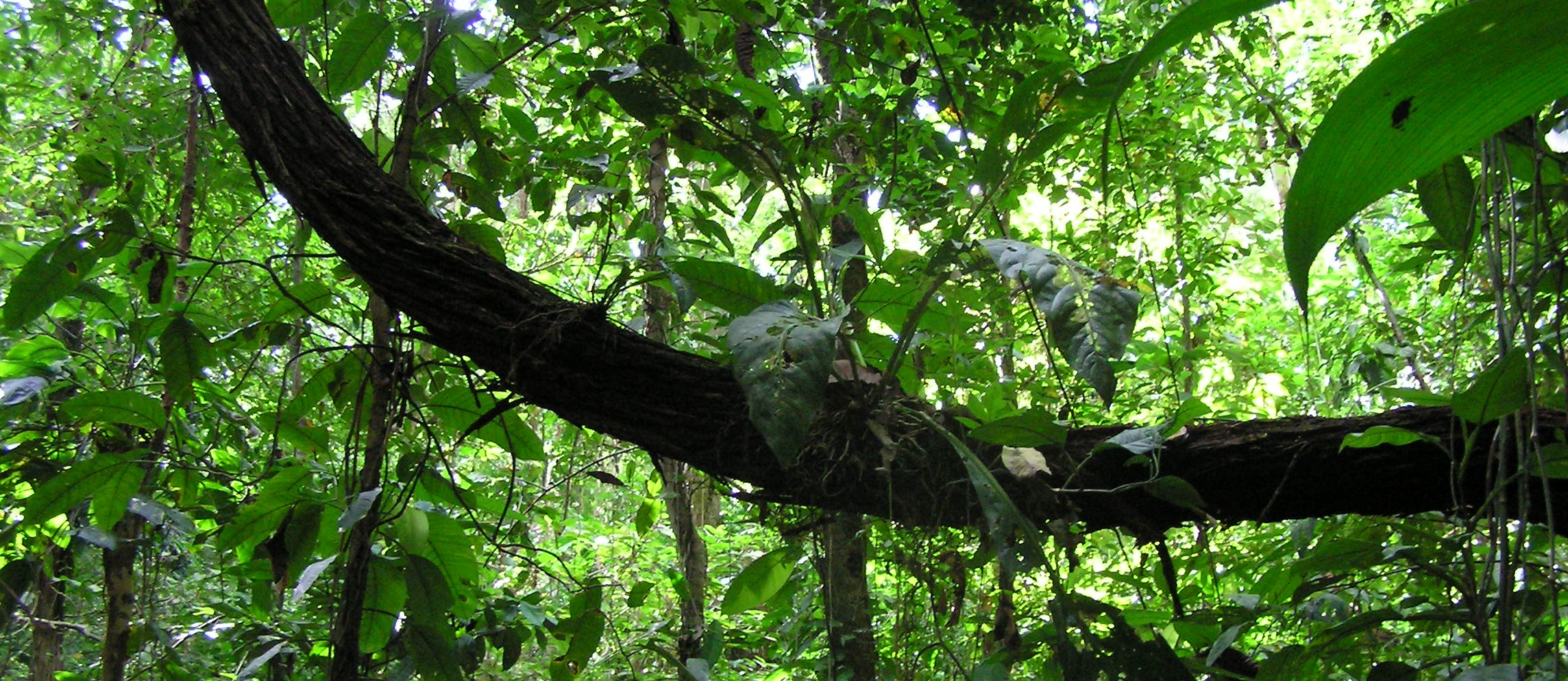Title
Field water relations of three temperate vines
Document Type
Article
Publication Date
1988
Volume Number
74
Source Publication
Oecologia
Abstract
A two year comparative field water relations study was conducted in central Maryland on three sympatric temperate lianas, Lonicera japonica, Vitis vulpina and Parthenocissus quinquefolia. Seasonal physiological activity was longer by approximately 9 weeks in the evergreen L. japonica, while peak rates of stem elongation were 4–10 fold higher in the two deciduous species. There were marked differences in vascular anatomy and water use patterns among the three species, however all three evidenced varying degrees of stomatal closure in response to decreasing soil water availability and increasing atmospheric evaporative demand. The range of leaf water potentials measured in these species was quite narrow in comparison to other temperate woody species. Two of the species showed no alterations in their tissue water release properties in response to decreased soil water availability, while V. vulpina showed a limited capacity in this regard. Most significant among the species differences in water relations were the conservative water use patterns of P. quinquefolia, and the midday maxima of transpirational water loss measured in L. japonica compared to the morning peaks in traspiration for the two deciduous species. The differences found in anatomy, leaf phenology, climbing mechanics, water relations and canopy development among these three sympatric vines implies a spatial and temporal partitioning of light and water resources and emphasizes the diversity of morphological-physiological suites of characters present among species co-occurring in the same macrohabitat.
